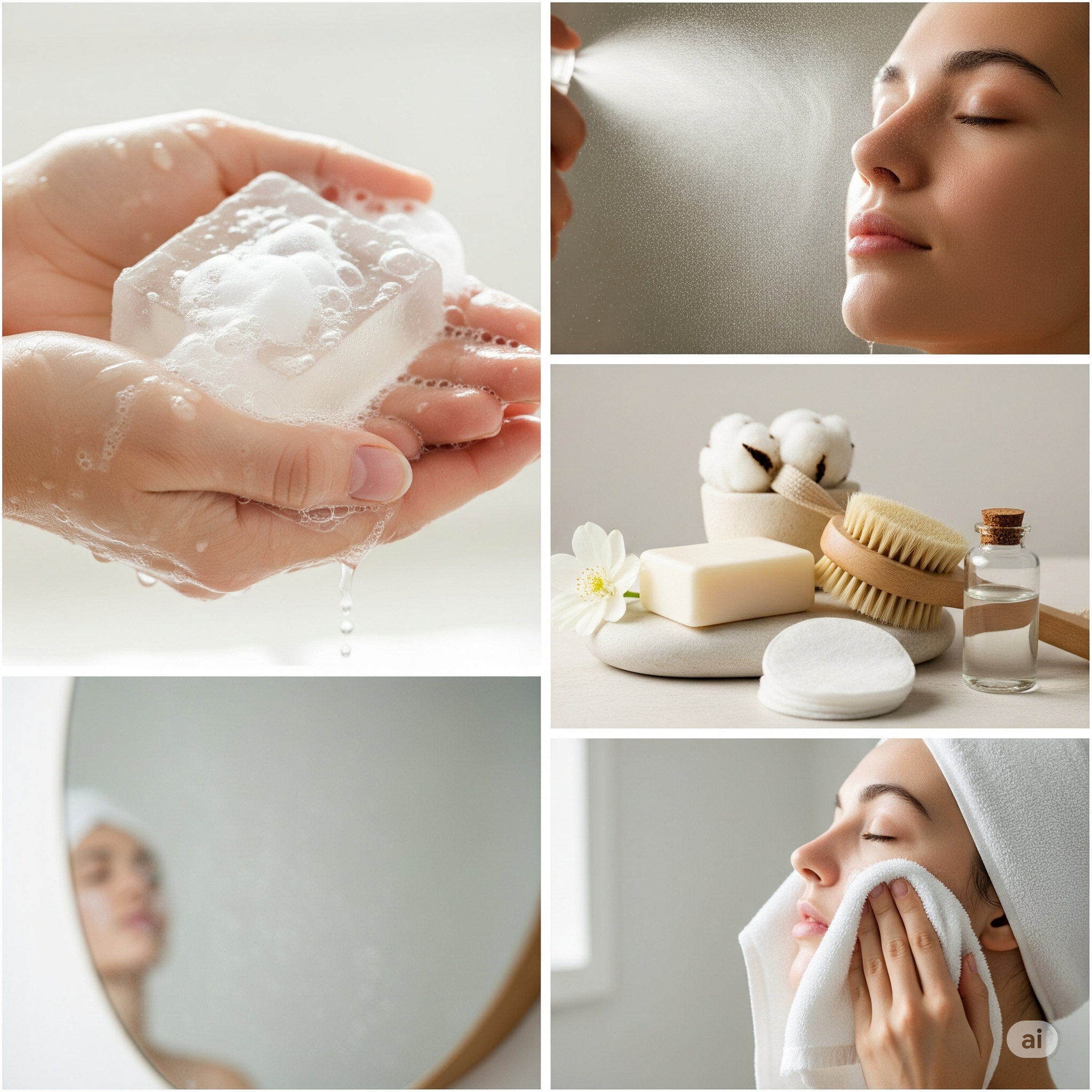Acne-Prone Skin Care Routine – A Complete Guide for Clearer Skin
Introduction
If you struggle with pimples, oily skin, or clogged pores, following an acne-prone skin care routine can make a huge difference. The right routine helps calm irritation, prevent breakouts, and protect your skin barrier. In this guide, we’ll cover every step of an effective acne-prone skin care routine, common mistakes, and lifestyle tips for healthy skin.
1: Gentle Cleansing in Your Acne-Prone Skin Care Routine
Start your acne-prone skin care routine with a mild, sulfate-free cleanser. Harsh soaps can strip your skin, making acne worse. Cleanse twice daily to remove dirt, oil, and sweat without over-drying.
ctus nec ullamcorper mattis, pulvinar dapibus leo.

Step 2: Balancing Toner for Acne-Prone Skin
Add a gentle, alcohol-free toner to your routine. Ingredients like witch hazel or niacinamide help balance pH, reduce redness, and calm irritation in your acne-prone skin care routine.
Step 3: Targeted Acne Treatments
Use active ingredients in your acne-prone skin care routine:
Salicylic Acid – unclogs pores
Benzoyl Peroxide – fights acne bacteria
Niacinamide – soothes inflammation
Always patch test new treatments before full use.
Step 4: Moisturizing for Acne-Prone Skin
Hydration is crucial. Use a lightweight, oil-free, non-comedogenic moisturizer. Ingredients like hyaluronic acid and ceramides keep your skin balanced without clogging pores.
Step 5: Daily Sun Protection
Protecting your skin is essential in any acne-prone skin care routine. Use a broad-spectrum SPF 30+ sunscreen daily to prevent darkening of acne scars and protect sensitive skin from UV damage.
Weekly Care & Exfoliation
Exfoliate once or twice a week with a gentle AHA or BHA product. Clay masks can also help reduce excess oil as part of your acne-prone skin care routine.
Common Mistakes to Avoid in Acne-Prone Skin Care Routine
Overwashing the face
Using too many actives at once
Skipping sunscreen
Ignoring hydration
Lifestyle Tips to Support Your Acne-Prone Skin Care Routine
Drink plenty of water
Sleep 7–8 hours daily
Eat a balanced diet with fruits, vegetables, and omega-3 foods
Manage stress through meditation or light exercise